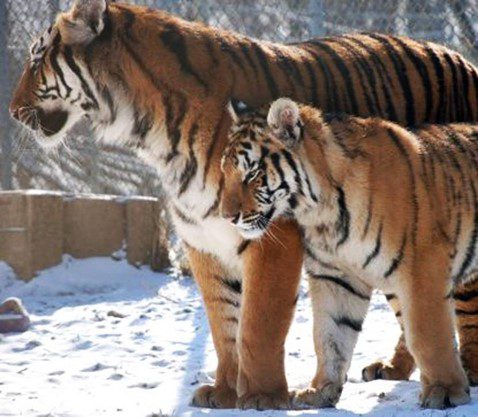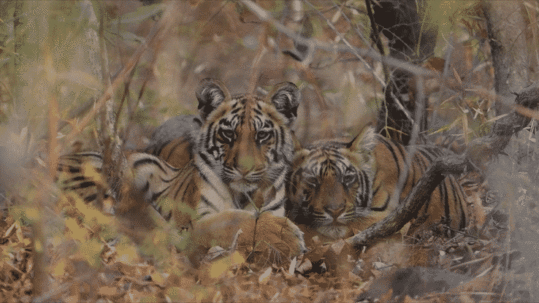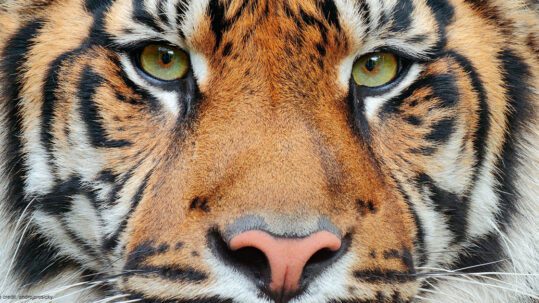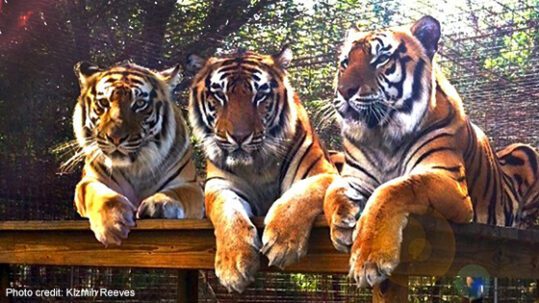Tigers in America (TIA) is an all-volunteer organization headquartered in New York. Founded in 2011, with a specific focus on rescuing captive tigers in the United States, TIA expanded its efforts to include all big cats (lions, leopards, cheetahs, cougars, and jaguars) in 2017, added bears and wolves in 2020, and in 2021 began work in Eastern Europe and Southeast Asia. TIA ensures every rescued animal receives lifetime care from discovery to sanctuary in a safe, forever home.
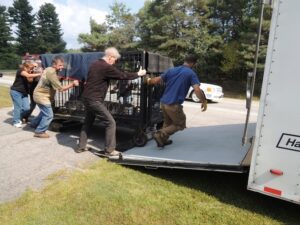
To date, TIA has participated in the rescue of 430 captive big cats. It funds the transportation, veterinary care, tiger rehabilitation, food, logistics, equipment rental, and construction of tiger enclosures at the 15 sanctuaries that have been identified by TIA and have met an extensive list of criteria to qualify as a TIA sanctuary.
In its 12 years, TIA has worked on the captive tiger breeding and abuse problem, 73 of the 306 “roadside” zoos in the United States have since closed. Ringling Brothers circus shut down its operations in 2017, and 23 of the 35 remaining circuses have closed or have stopped using tigers. TIA estimates tiger breeding (the main reason there are thousands of captive tigers in the United States) has been reduced by 50% since 2011.
Extending TIA’s Reach Internationally
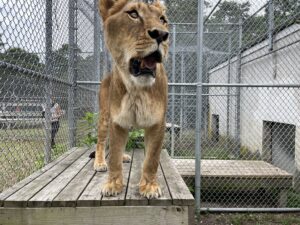
Learning from rescue experiences has provided TIA with practical, effective, and replicable strategies in its big cat rescue program.
- Rescues: In all wars and disasters, priority should be given to people. This effort is generally followed by rescue and assistance for animals. Much has happened since the response in the US to the Hurricane Katrina disaster when people in New Orleans asked for assistance with their companion animals. The tragedy in Ukraine has also produced stories of people rescuing their pets and helping to feed animals (such as sanctuary and zoo animals) who have been caught up in the war. The large and dangerous predator zoo residents are the most difficult to move. If a relocation system were to be set up to move the tigers out of Ukraine, such an operation would help stimulate the relocation of all sanctuary and zoo animals. The tigers and lions are the most at risk. Occupying soldiers are curious when they first come upon a zoo but ultimately get bored and use the big cats for target practice and trophies.
- Relief: Relief consists of finding temporary space in neighboring countries and providing food and veterinary care. Obtaining approval to move these animals to other countries will vary by country and be time-consuming. Furthermore, relocated facilities may need to be refitted or expanded to add additional residents.
- Rebuild: Perhaps a silver lining to an otherwise desperate situation is that many of the existing captive animal facilities will have to rebuild after the war. This rebuild could provide an opportunity to transform these facilities into Sanctuaries. However, we do not suspect there will be many takers. Unfortunately, tiger breeding is also common in Eastern Europe (as it has been in the United States). Many big cat holders participate in a tiger breeding network that supplies tigers for petting exhibits and private ownership across Europe. TIA plans to adopt the same strategy in Europe that it has deployed in the United States, where TIA operations provide safe alternatives to exploiting the big cats.








